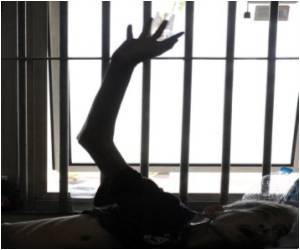
Many were no older than Green was back in the summer of 1983, when he was wrongfully convicted of raping a woman based on faulty eyewitness testimony.
Today, as he shared his story with students he spoke slowly and solemnly.
His message was aimed squarely at salvation: stay out of trouble. Don't put yourself in the wrong place at the wrong time.
"It can happen to anybody," Green cautioned the students.
Green, 46, was released from prison on July 30 after DNA results from a pair of jeans the victim wore during the crime proved he did not take part in the rape.
Advertisement
Green would never have been released if it weren't for the years he spent studying the law and petitioning the courts for his release.
Advertisement
It also helped him land his first job out of prison. For the first four months after his release, Green went to the office of Bob Wicoff, the lawyer who helped free him, and sifted through letters from inmates to see if any of them had grounds for an innocence claim in which DNA could be used for exoneration.
That work is over now that Wicoff has accepted a new job with the public defender's office, but Green said he plans on reaching out to local innocence organizations to offer his assistance.
The months since his release have been a huge adjustment. He's spent a lot of time with family and has been amazed by all the new technology which never made it past the prison walls.
For the most part, Green, who didn't want to talk about the compensation money he's eligible for from the state of Texas, said he is just taking it day-by-day.
The most rewarding moments have been when Green has the opportunity to share his story with young people in the hopes that they won't end up suffering a similar fate.
"I love to do this and hopefully I can reach some of them," Green said. "I really wish I could reach all of them."
Green was just 18 years old when he was convicted. Police were searching for four men suspected of raping a woman in a stolen car, and found Green walking nearby.
When police asked the victim if Green was one of the men who raped her, she told officers no. About a week later, Green was arrested for stealing a car. The next thing he knew he was in a police lineup, and identified by the victim as one of the rapists.
"I preached to those dudes in prison, just like I preach to these youngsters to stay out of the way (of trouble)," he said. "Because the system is not going to play with you."
Sharing the stories of their wrongful conviction can help exonerees to heal, and can offer some structure, said Karen Wolff, a social worker with the Innocence Project.
"All cases are unique, and that's not always the solution for everybody," Wolff said.
Green also has a lot to teach, said Michea Carter, director of theater arts at Westbury High School, who invited Green to speak after her students performed a play about exonerated inmates earlier this month.
"You need someone like Michael to come in and show them this is real," Carter said.
During a question and answer period that evening, students asked Green everything from what prison life was like to how he felt being convicted of a crime he did not commit.
His answers moved many of the students, particularly when he talked about his mother dying while he was in prison.
One of the youngest audience members, Omar Joseph, seven, jumped from his seat in the auditorium and raised his hand high. When Green called on him, he asked in tiny voice, "Why did she (the victim) blame you?"
Green shook his head, threw his arms to the side and shrugged.
It's a question he still cannot answer.
Source-AFP









